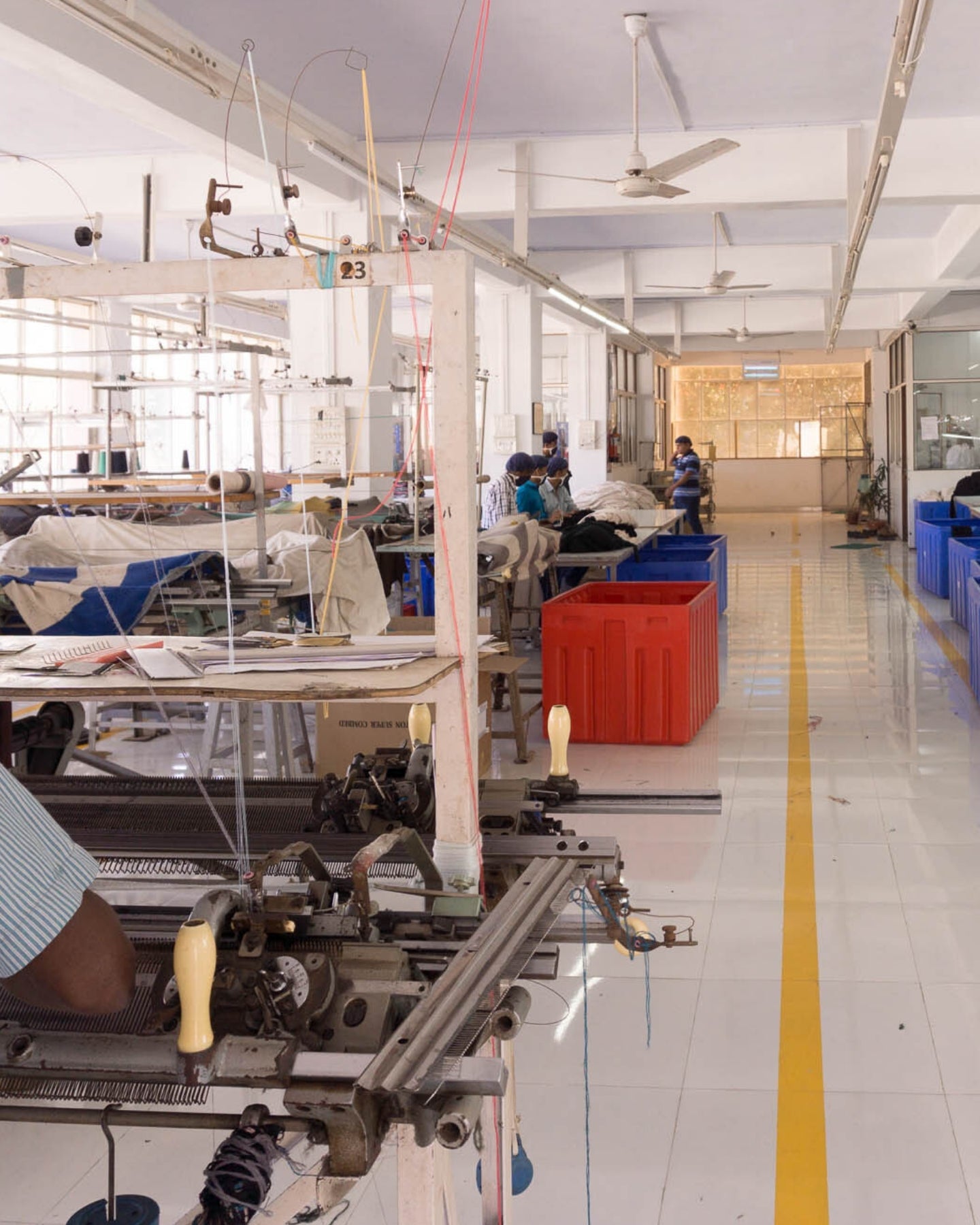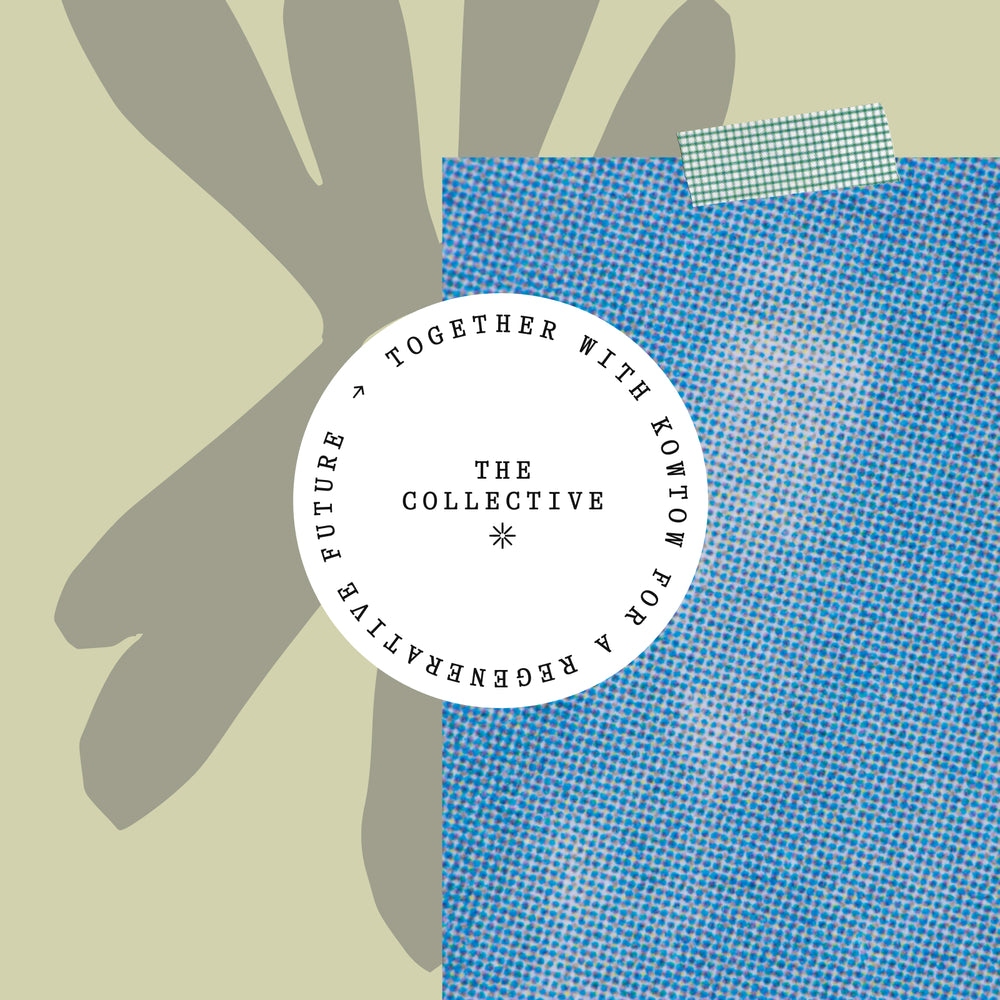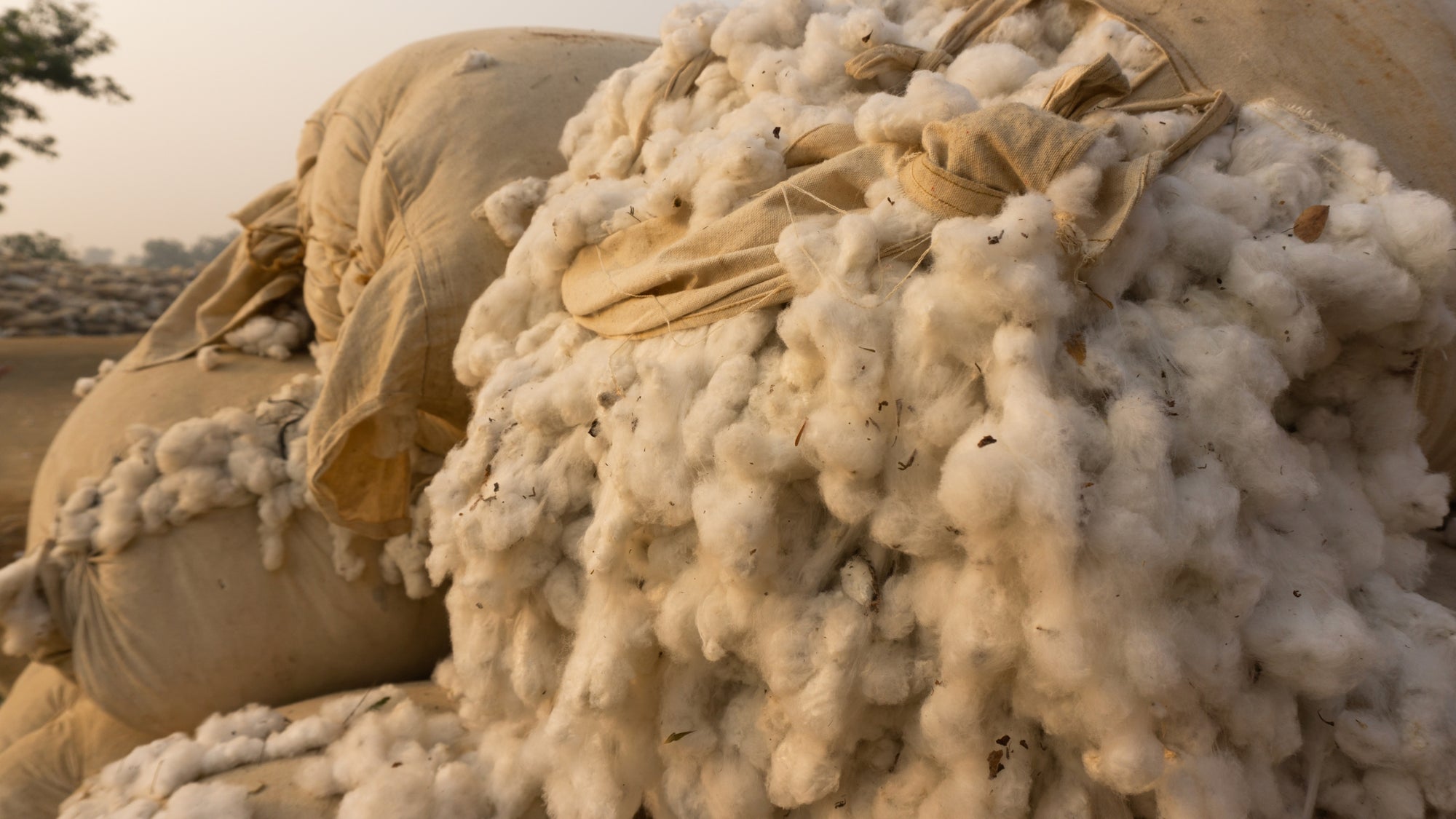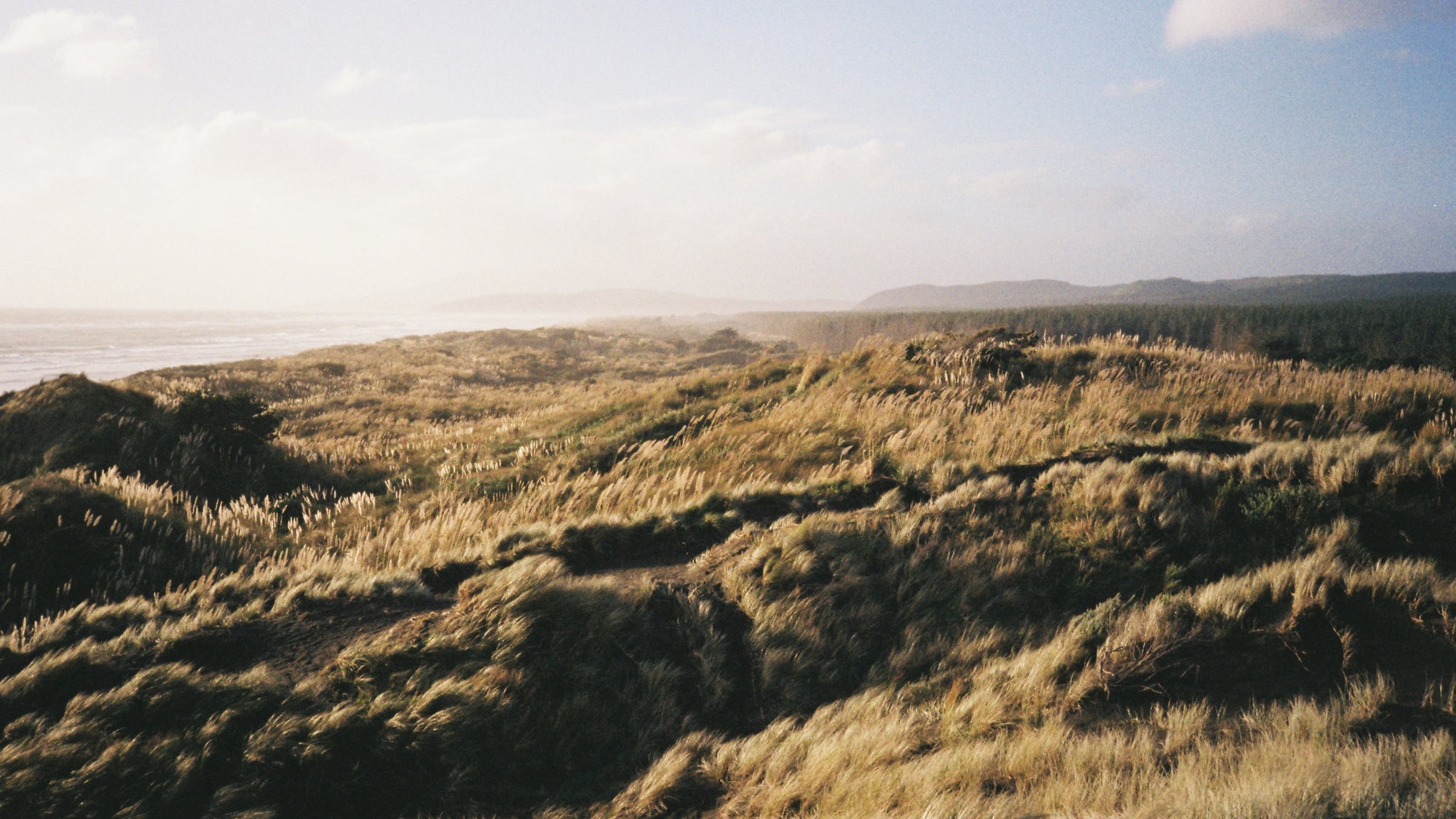Kowtow is Global Organic Textile Standard certified. All our organic cotton uses Global Organic Textile Standard (GOTS) approved inks and dyes, which are free from chlorine bleach, toxic heavy metals, formaldehyde and aromatic solvents. Apart from its ecological criteria, GOTS also considers working conditions in supply chain production, based on international labour organisation standards such as the right to fair wages, unions and safe working conditions.
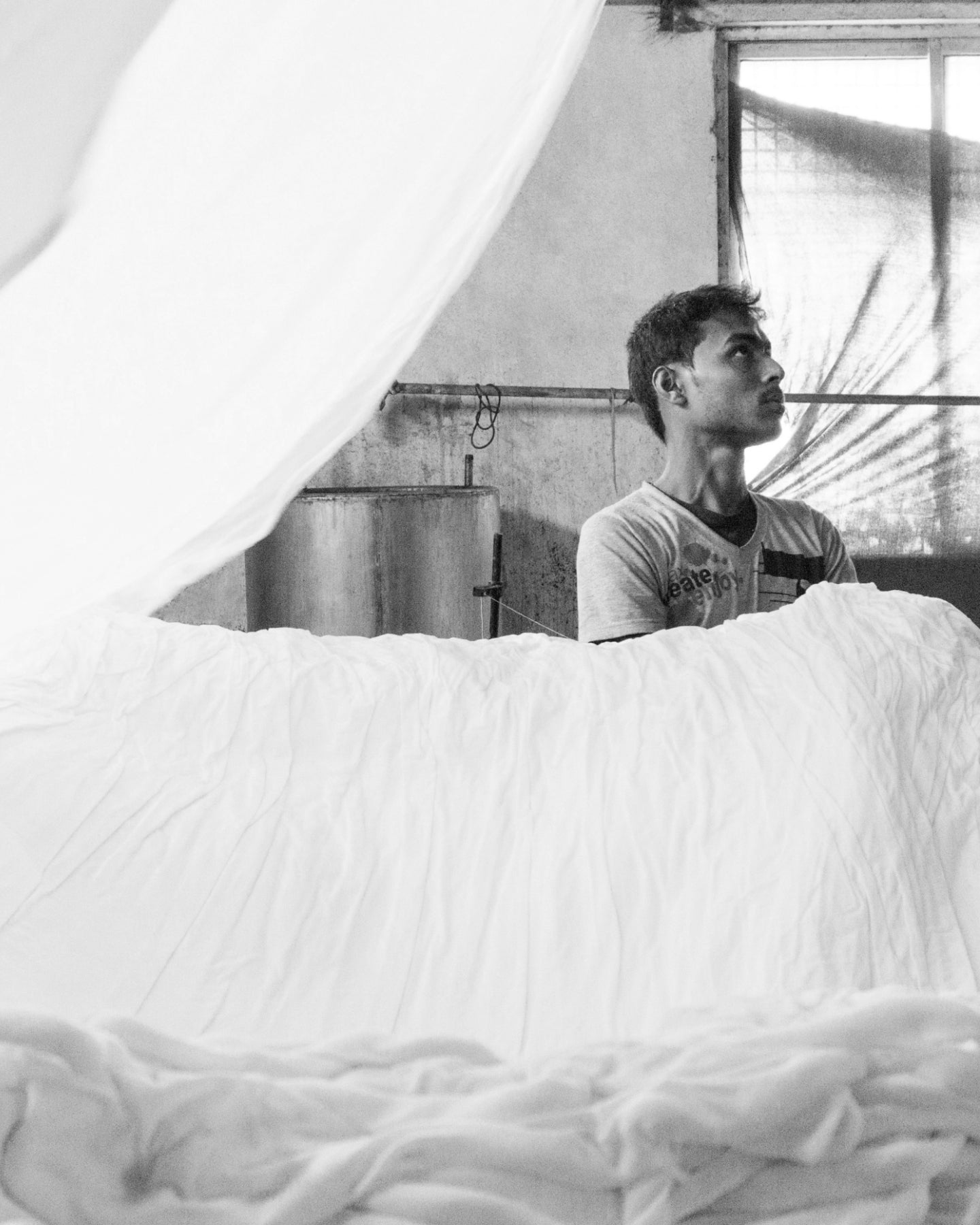
Transparency
At Kowtow, transparency is built into our foundation, helping us challenge the industry and promote positive change for all our partners.
We are committed to being open and transparent about every part of our business, from material sourcing and production processes to looking after the people working in our supply chain.
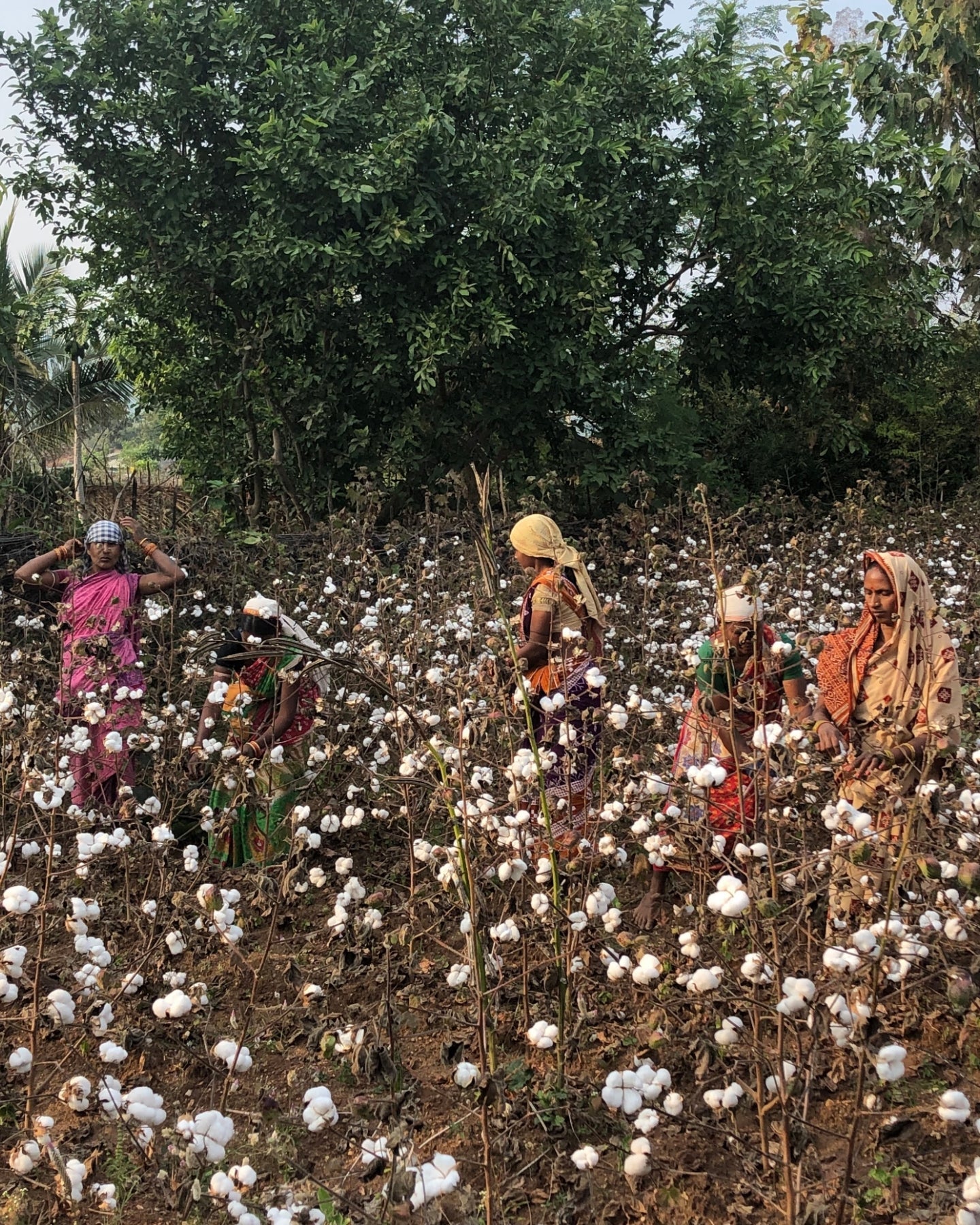
What does Fairtrade mean?
The Fairtrade movement aims to change unjust systems, ensuring farmers are paid fairly while working to improve sustainability, governance, inequality and community development in surrounding communities.
Since Kowtow's inception in 2006, we have been Fairtrade-certified, working with Fairtrade-certified partners throughout our supply chain. From Fairtrade-certified cotton farmers to mills and manufacturers, we can trace every part of our process from seed to garment. We have retained close partnerships with the same manufacturers in India over the years and visit them regularly.
Our supply chain is audited and certified by the Fairtrade Labelling Organisation International (FLO).
Here is our Supply Chain map
Case Study
Meet the makers
Kalpesh Patel is an employee at Purecotz, one of our certified Fairtrade manufacturing partners in India. Here he shares his thoughts on what Fairtrade means to him.
“I have worked at Purecotz since 2005 through various departments from helper and tailor to supervisor and finally today I am RTS (ready to stitch) in charge.
“Being Fairtrade means that our company is compliant with Fairtrade rules and regulations. It means Fairtrade takes care of our working atmosphere and our wages etc, without any discrimination.
“Working here makes my family secure, as Purecotz has good benefits which we usually do not see in non-compliant factories outside. We receive 15 paid leaves, seven casual leaves and seven sick leaves per year which we can use if required. Also, we get a yearly bonus amount which helps with our expenses during the Diwali festival.
“Our family is also medically insured by our company, which was beneficial in 2020, when I was COVID infected. I was hospitalised and it was very serious. The expense of hospital was totally covered under health insurance done by Purecotz. If that had not been there it would have been a very big problem for us.”
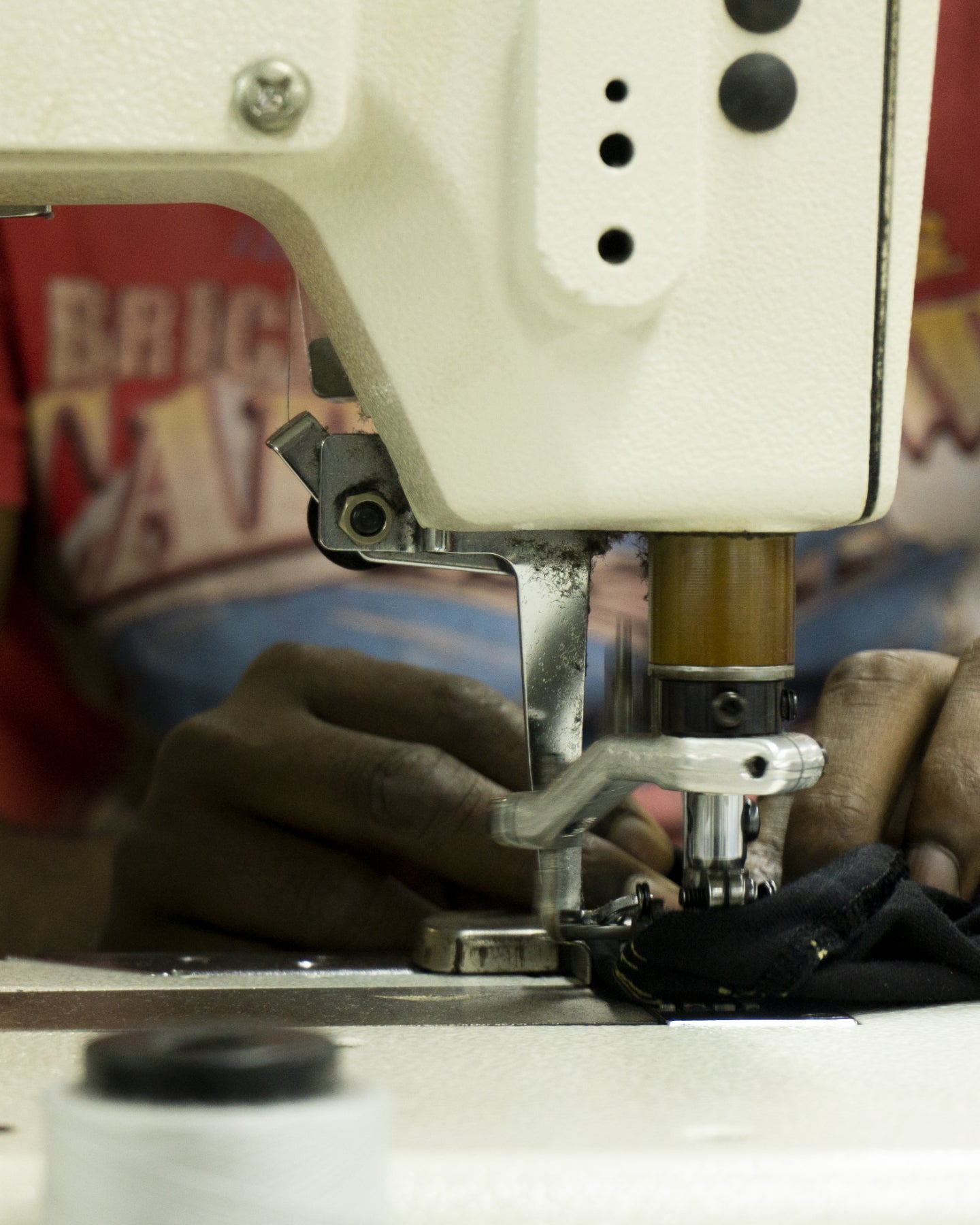
Third party audits
-
GOTS
-
SA8000
We continue to align ourselves with Social Accountability International (SAI) accredited suppliers for our fabrics and manufacturing and work closely with them to deliver on continuous improvements. SA 8000 is an international standard that ensures companies are doing right by their workers by addressing a range of issues from forced labour to occupational health and safety. Every step of the production process is held to the highest ethical standards, ensuring that everyone involved is treated with respect, fairness and dignity.
-
NOP
Our cotton is grown from non-genetically modified seeds, organically farmed without harmful chemicals in India and certified under the National Organic Programme (NOP). Developed by the Government of USA, NOP helps organisations implement farming techniques that do not hamper the reproductive and regenerative capacity of the soil, including companion planting and crop rotations, which helps to preserve entire ecosystems.
-
Oeko-Tex Standard 100
Oeko-Tex Standard 100 is an independent certification system for textiles and trims that tests for harmful substances in every stage of the production process, including substances like heavy metals, pesticides, formaldehyde and more. Oeko-Tex Standard 100 certification ensures strict standards for safety and sustainability are met.
We support established, rigorous, third-party certification programmes that ensure our production processes meet the highest ethical and environmental standards. These certifications provide a clear roadmap for our suppliers to follow, helping us work together to create positive change.
Case Study
Progressive production
Amit Narke is the owner of Purecotz, one of Kowtow's Fairtrade-certified manufacturing partners in India. Here he shares his thoughts on Fairtrade, the partnership with Kowtow and sustainability in the fashion industry.
“Fairtrade standards have been like a guiding light for us to follow towards achieving our goals of social sustainability for approximately 8-9 years. We did not need to reinvent the wheel - we ourselves have a strong social agenda which is guided by Fairtrade standards.
“Our core value is honesty, which is implemented in practice through truth, transparency, traceability and peace. To prevent issues of forced or child labour, we have a strong recruitment and HR process in place which verifies age, etc, of our prospects to ensure compliance.
“We've worked with Kowtow for many years and the relationship has evolved from supplier-customer to a partnership. Decisions and responses to various challenges in business by Kowtow have been in the spirit of partnership and understanding, which is much beyond a usual business contract. Kowtow is living the standards and much more - the energy and warmth of our association is precious and a benchmark for ‘business with a heart.’ During tough times of COVID or supply chain challenges, Kowtow has shown immense maturity and empathy and struck a perfect balance between the economic, social and environmental aspects of business.
“Sustainable fashion is here to stay. Consumers are becoming more aware and governments are more active in bringing in related regulations. This will drive more quality and more value into the lives of people through the supply chain from farm to fashion.”
